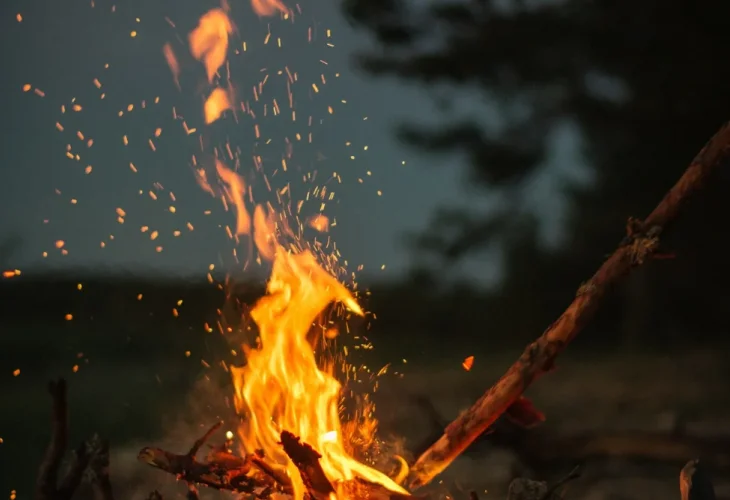Health and Nutrition
Lag BaOmer Bonfire Safety: How to Protect Your Health from Smoke Exposure
Tips for reducing the risks of bonfire smoke- including advice for sensitive skin, irritated eyes, and those with asthma or respiratory issues.

Lag BaOmer brings warmth, light, and joyful memories, but also a lot of smoke. While it may not always be immediately noticeable, the smoke from wood-burning bonfires contains fine particles that can irritate the lungs, eyes, and skin, especially for those with respiratory conditions, sensitive skin, or watery eyes. With a little preparation, you can enjoy the holiday while minimizing exposure.
1. Keep Your Distance- Even at a Friend’s Bonfire
The farther you are from the smoke, the fewer harmful particles you'll inhale. Choose a seat that's downwind (in the direction the wind is blowing) so smoke drifts away from you. Even a few meters can make a big difference in air quality.
2. Protect Your Skin- Especially If It’s Sensitive
Smoke can cause skin irritation, dryness, redness, or a burning sensation, especially in children and those with sensitive skin. Apply a light moisturizer before heading out, and wash your face and hands with soap and water after being near the fire.
3. Limit Time Spent in the Smoke
The longer you stay near the bonfire, the more exposure builds up. If you start to feel short of breath, a burning throat, or stinging eyes, it’s a sign to step away for a bit, drink some water, and get some fresh air.
4. Don’t Forget Eye Protection
Smoke particles can irritate the eyes, causing burning or watering. Consider wearing non-prescription glasses to shield your eyes, avoid rubbing them, and rinse gently with clean water if needed.
5. Hydrate and Breathe Clean Air
Smoke dries out your airways. Drinking water helps cleanse the body and soothe irritated tissues. After returning home, open a window, take a few deep breaths of clean air, and give your lungs a break.
Extra Tip for People with Breathing Issues:
If someone in your family has asthma, chronic cough, or difficulty breathing, consult a doctor in advance. You may need to have an inhaler on hand or limit exposure time. A smoke-free celebration at home can also capture the spirit of the holiday without the health risks.
This article is for general informational purposes only and does not constitute medical advice. For any health concerns, sensitivities, or symptoms, consult a healthcare professional. The suggestions here are not a substitute for personal diagnosis or treatment.

